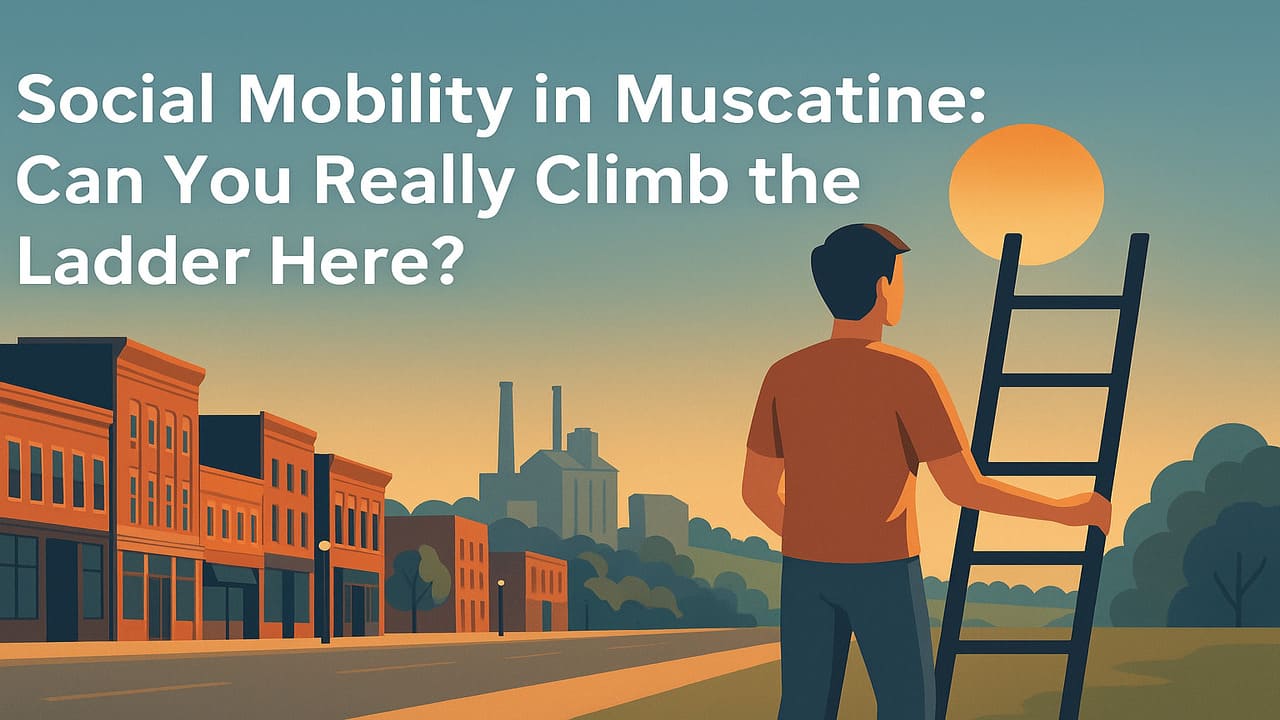
Meet Muscatine – Social mobility the ability to improve one’s socioeconomic status relative to their parents relies on a combination of factors: access to education, availability of quality jobs, community support, and fair systems. In large cities, mobility tends to be fuel by diversity in industries, competitive labor markets, and abundant educational institutions. But in small towns like Muscatine, where the economy has traditionally been shaped by manufacturing, agriculture, and family-run businesses, the mobility map is narrower and sometimes harder to navigate.
Muscatine has long been support by major employers like HON, HNI Corporation, and GPC. These companies have provided stable employment for generations, but they also form a tight-knit employment landscape where moving from entry-level positions to managerial roles often requires not just skill but connection and familiarity with the local social fabric.
Education is a critical driver of social mobility, and in Muscatine, public schools and Muscatine Community College play central roles. For many families, especially those from lower-income backgrounds, a high school diploma followed by vocational training or a two-year degree is the clearest pathway toward stable employment.
However, the leap from community college to a four-year university and from there to higher-paying careers can be challenging. Limited financial resources, lack of mentorship, or even a reluctance to leave the familiarity of home often keep residents tied to their starting points. Despite this, local educators and nonprofits have been stepping in to bridge the gap. Programs that offer college readiness, scholarship navigation, and job placement assistance are slowly creating new avenues for upward mobility.
Also Read : Shell Hunting at Riverside Park: A Muscatine Teen Tradition
In Muscatine, as in many small towns, social mobility is deeply tie to family expectations and cultural norms. Many young adults follow in their parents’ professional footsteps, whether in trades, factory work, or small business ownership. While this generational continuity can be a source of pride, it may also unintentionally limit exposure to broader opportunities.
Additionally, those who break the mold by pursuing university education or relocating for career advancement can sometimes feel a sense of disconnection from their roots. The community celebrates stability, and ambition that stretches too far outside the local context may not always be understood or encourage.
Still, stories of success exist. First-generation college students, immigrant families building businesses, and locals who return with fresh perspectives after living elsewhere are quietly reshaping the narrative of what’s possible in Muscatine.
Despite its close-knit nature, Muscatine is not immune to the structural challenges that hinder social mobility: income inequality, limited affordable housing, and racial disparities in access to opportunity. For immigrant communities, especially Latino families who have been central to Muscatine’s workforce for decades, systemic barriers such as language access, documentation issues, or limited civic representation can further complicate the journey toward economic advancement.
On the other hand, recent efforts from local government, businesses, and nonprofits have begun to address these gaps. Initiatives to support minority-owned businesses, mentorship programs for youth, and partnerships between schools and employers aim to create a more inclusive and dynamic local economy.
Read More : Doctors Reveal: Why Even One Cigarette Around Kids Can Be Deadly!
While social mobility in Muscatine might not mirror the dramatic “rags to riches” narratives found in larger cities, it offers its own version of upward movement often quieter, more relational, and deeply rooted in community values. In Muscatine, climbing the ladder might mean opening a successful auto shop, becoming a supervisor at a plant, or being the first in a family to attend college. These stories may not always make headlines, but they represent real progress.
Ultimately, the future of mobility in Muscatine depends not only on creating more pathways, but also on redefining what it means to “make it.” If local success is measured not just by income, but by contribution, community, and quality of life, then Muscatine has every reason to believe that the ladder isn’t broken it’s simply built a little differently.